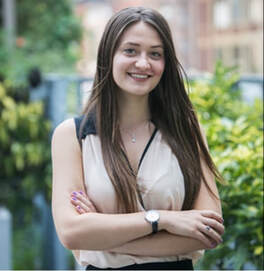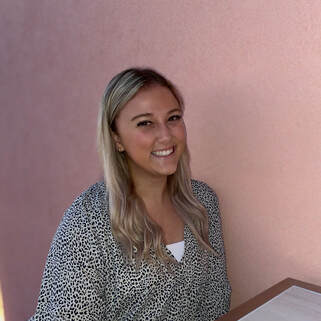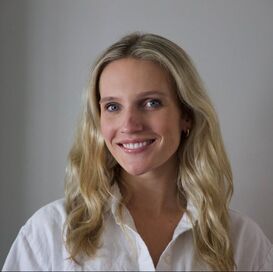|
by Kimia Lavasani (2023-2024 Experimental Liaison)
Doctoral programs are highly demanding and are becoming more and more competitive every year. With the growth of psychology as a field, it can be challenging to feel unique and appreciate one’s efforts as much as one should. For some, this issue can present itself in the form of Imposter Syndrome. Here are a few tips that may help in overcoming Imposter Syndrome: 1. Understand it: First and foremost, it is absolutely essential to understand what Imposter Syndrome is. The easy definition marks this syndrome as one where the individual does not see their full potential as others see it. They may feel like they are a “fraud” who is pretending to know what they are doing, and who may be eventually “discovered” as someone who is not as competent as others think they are. Notably, this can be extremely common among high-achieving individuals; especially if they are first-generation college students. Acknowledging and accepting that this may be what you are going through is the first step in the right direction! 2. Manage it: There are many ways you can make such feelings more manageable. One of the most important and widely used techniques involves boosting your self-esteem. One major component of Imposter Syndrome is the fact that the individual does not accept their potential and competence in a realistic manner. To overcome this, you can keep an accomplishments notebook. You can add pictures or write a motivating sentence or two for your future self as well. This way, when you begin to notice your self-doubt coming back, you can review your notebook to remind yourself of the person you truly are. You can also leave sticky notes on your mirrors or a quick note on your phone, summarizing yourself in a way that you are proud of and motivates you. It is important to note that these are not the only ways to remind yourself of your potential, there are many creative ways you can do this. No matter what method you choose, it is essential to have reminders to look back during challenging times. Self-affirmations in any form have been shown to be effective in reducing some of the symptoms of Imposter Syndrome. 3. Ask for Help: Lastly, it is important to realize that Imposter Syndrome can be extremely debilitating if left untreated. You may be thinking that it is not a serious enough condition or that it is normal to be so full of doubt in graduate school. But the truth is that if you are consistently putting yourself down and undermining your competence, then your quality of life can be significantly impacted. There are many professional development opportunities (e.g., workshops, conferences) that can offer more detailed coping strategies. Also, it never hurts to discuss any concerns with a mentor or licensed clinician in a safe space. Best of luck!
0 Comments
by Suchika Siotia (2023-2024 Diversity Liaison)
Preparing for the Examination for Professional Practice in Psychology (EPPP) can be a daunting task for aspiring psychologists. This comprehensive exam assesses a wide range of knowledge and skills essential for the practice of psychology. To help you navigate this challenging journey, we've compiled a list of tips and tricks to optimize your preparation and increase your chances of success. By following these strategies, you can approach the EPPP with confidence and achieve your goal of becoming a licensed psychologist. 1. Understand the Exam Structure The EPPP consists of 225 multiple-choice questions, covering eight content areas:
2. Create a Study Plan Set a Timeline Establish a realistic timeline for your study period. Most candidates prepare for 3-6 months. Break down your study schedule into weekly goals, ensuring you cover all content areas. Daily Study Routine Dedicate specific hours each day to study. Consistency is key, so try to study at the same time each day to build a routine. Detailed Scheduling
Adaptive Planning
3. Use Quality Study Materials Books and Guides
Online Resources
Digital Tools
4. Practicing Effectively Full-Length Practice Tests
Question Banks
5. Targeting Weak Areas Focused Study
Group Study
Seek Help When Needed If you’re struggling with specific topics, consider joining a study group or seeking help from a tutor or mentor. 6. Develop Test-Taking Strategies Time Management
Answering Techniques
Staying Focused
Answer Every Question There’s no penalty for guessing, so make sure to answer every question. If unsure, eliminate obviously incorrect options and make an educated guess. 7. Take Care of Yourself Balanced Routine
8. Exam Day Preparation Final Preparation
Logistics
Success in the EPPP requires a blend of strategic preparation, effective study habits, and personal well-being. By understanding the exam structure, creating a detailed and flexible study plan, utilizing diverse study materials, and maintaining a balanced lifestyle, you can approach the exam with confidence. Remember, consistent effort and a positive mindset are essential components of your preparation journey. Good luck! by Aysha Nesbitt (2023-2024 Clinical Liaison) This conversation took place during the annual conference of the American Psychology and Law Society held in Los Angeles, CA in March 2024. The session, titled "Bridging the Gap Between Virtual Assessment Development and Implementation," engaged a panel of clinicians and researchers in a robust discussion about the ethical and practical considerations inherent in integrating virtual assessment tools within legal and psychological contexts. Below is a file which contains a recording of the panel, as well an outline of the conversation with key takeaways for your convenience.
Introductions & experience integrating virtual care and assessment services in clinical or research settings:
Ashley B. Batastini, Ph.D., Centre for Forensic Behavioural Science, Swinburne University of Technology. Dr. Ashley Batastini is an Associate Professor in the Centre for Forensic Behavioural Science at Swinburne University of Technology. Her work broadly focuses on novel intervention strategies for higher-risk populations and ways to improve access to appropriate services at various stages of criminal legal involvement. She has conducted work related to technological applications in psychology-law contexts for more than 10 years, which has accumulated in numerous first- and co-authored book chapters, refereed articles, conference presentations, invited talks, and both internal and external funding (e.g., U.S. Health Resources and Services Administration, the American Psychological Foundation). Dr. Batastini is currently a member of APA’s Office of Health Care Innovation Advisory Committee for Mental Health Technology and recently co-chaired the AP-LS Telepsychology Taskforce. Dr. Glenn Scott Lipson, PhD, ABPP, Professor at Alliant International University/California School of Forensic Studies. Owner and CEO of Making Right Choices Squared. Dr. Glenn Lipson, PhD, ABPP, is a recognized expert in Forensic Psychology. He has spent three decades tackling violence from all fronts in preventing, intervening, and providing opinions in cases involving violent crimes. As an expert witness, speaker, and advisor, he has testified in court-martials and regulatory hearings and submitted briefs through counsel to the United States Supreme Court. He has actively contributed to the San Diego District Attorney’s School Threat Assessment Team (STAT) to prevent school violence. Dr. Lipson is also the founder of MRC (Making Right Choices) that offers training on ethical and boundary violations which lead to misconduct, and of the NASDTEC (National Association of State Directors of Teacher Education and Certification), an academy for preventing and correcting misconduct. Dr. Ana Belmonte, PhD, Chair of the Division of Forensic Psychology at The Chicago School. Dr. Ana Belmonte is the Chair of the Division of Forensic Psychology at The Chicago School. She is a licensed clinical psychologist in Illinois and Wisconsin. Dr. Belmonte's clinical and research interests include evaluation and assessment with forensic populations, competency/fitness to stand trial restoration, issues related to family law and families in conflict, such as divorce, parenting capacity, and child custody, and policy and legal advocacy. Prior to her current role, Dr. Belmonte served as the Director of Assessment and Research at The Chicago School Forensic Center where she launched the Center’s telehealth assessment program in the early days of the COVID pandemic. Dr. Belmonte continues to conduct evaluations through The Forensic Center’s outpatient competency restoration program. In addition to her academic and clinical work, Dr. Belmonte currently serves as the Chair of the Social Media Committee for AP-LS. Dr. Alexandra Lugo, PhD, California Department of State Hospitals- Metropolitan. Dr. Alexandra Lugo is an early career psychologist, recently graduating from Palo Alto University with her Ph.D. in Clinical Psychology and an emphasis in Forensic Psychology. She completed her predoctoral internship with the California Department of State Hospitals-Metropolitan in Los Angeles, California, where she is now a staff psychologist. Dr. Lugo co-developed a suicide risk assessment smartphone application for use by police officers in guiding their risk determinations and decision-making. She also works as a consultant on issues related to suicide risk assessment and leveraging technology for uses in the criminal justice system. Dr. Lugo recently served as a member on the AP-LS Telepsychology Taskforce. She has published articles and given prior conference presentations, invited talks, and guest lectures on issues related to cultural and ethical issues in the criminal justice system as well as on the application of technology to improve existing psychology-law practices. Laura Stevens, M.A., M.S.C., University of Birmingham. Laura Stevens is a Ph.D. student completing her doctorate at the University of Birmingham UK. During her Ph.D., Laura has validated a mobile phone application that gathers memory evidence from survivors of sexual and gender-based violence on the ground in Kenya. This research is in collaboration with the Wangu Kanja Foundation in Kenya who co-design all aspects of the research and implements it in practice on the ground. Alongside technological advancements, we also consider the sustainability of practice in low-resource environments. She has published articles on this topic and given conference presentations and invited talks globally to discuss the use of technological advancements in low and middle-income countries. What ethical considerations need to be made in this work and/or what steps need to be taken to mitigate these ethical concerns to prevent exacerbating disparities within the justice system?
What has felt like the greatest utility of virtual care?
What can we do to stay abreast of trends in technology?
 .We asked the members of the 2023-2024 Student Committee to answer some questions about themselves to help you get to know who they are and what they do. What is your school, program, and year? Fairleigh Dickinson University, Clinical Psychology PhD, 4th year. Why psychology and the law? I first realized this field existed when I took an anthro/psych/soc class in high school; when I found out about the intersectionality of these disciplines with the legal system, I was hooked. I originally wanted to be a forensic anthropologist but I realized 1) physical sciences are NOT for me and 2) psychology is just way cooler than anthropology. Now, I love it for being a field that can make individualized and system-wide differences simultaneously. What is your favorite thing about your current graduate program? The research. I have a great mentor/advisor (Dr. Georgia Winters) who is extremely supportive and accommodating. I love being part of a lab that allows me to engage in research on the topics I am interested in, and am always motivated knowing that the work we are doing will make a positive impact. If you were not in graduate school what would you do? I'd be an event planner - I love putting together themed parties & get togethers! What advice do you have for those applying to graduate school? Only apply to places you will be happy! You will get some no's (maybe a lot of no's...) but you will land where you should. Be patient & put in the work in advance. Coffee or tea? Tea. I am a tea fiend. Cats or dogs? Dogs - especially dachshunds (trust me on this - they are HILARIOUS). What three words would you use to describe yourself? Driven. Organized. Sarcastic. What is on the top of your bucket list? Travel to places that make it feel like you are on another planet (next up: Wadi Rum, Jordan). What is the worst song, in your opinion? Happy by Pharrell. Possibly an unpopular option but it was SO overplayed (and repetitive). What is the weirdest thing in your home? I still have some of my dog's baby teeth... *immediately realizes that is horrifying and goes to throw them out.* Is cheesecake actually cheese pie? Yes. Explain your hot take on cheesecake. Yes BUT - it depends on the dish used. If you make it in a pie plate? It's a pie. A cake pan? A cake. A square/brownie pan? It's a brownie by Morgan Wagner (2023-2024 Campus Rep. Coordinator)
Going to a conference can be stressful – whether it’s your first or fifteenth time, here are some tips to get the most out of your conference experience while maintaining your sanity! Before you leave Make sure you pack clothes you will be comfortable in, both physically and emotionally. Conference days are long, and you don’t want to be in an itchy top, uncomfortable pants, or shoes that pinch. You also want to be confident and professional. Bring clothes that help you do all those things (and if you can get it all in a carry-on, even better!). Bring business cards, or something with your name, affiliation, and contact information. This is super helpful when you connect with others at talks, social events, or poster sessions to give them your information without having to search for a pen and paper! Bringing something like this will be especially helpful if you are giving a talk or presenting a poster, as you can connect later with people who are interested in your research. If you are presenting a poster, get a cloth poster (instead of paper). This will save you the hassle of traveling with a large tube of paper, and is less prone to rips, crinkles, and folded edges. I personally use this website to print my posters. It costs about $25 and takes 2-3 weeks to create and ship. The Performance Pique fabric is wrinkle-proof – perfect for stuffing in a suitcase with the rest of your clothes! During the Conference Attend poster sessions! They have a more casual vibe compared to the rest of your day, they have free food, and there is a research area for everyone to enjoy. These sessions are a great way to network with people whose research you are interested in, as well as to learn about other areas in the field. Another great way to get a taste of many research topics is at a data blitz. In these sessions, you can get a broad overview of research questions in specific areas in a short period of time – perfect for those looking to explore a new area within the field!  We asked the members of the 2023-2024 Student Committee to answer some questions about themselves to help you get to know who they are and what they do. What is your school, program, and year? University of North Texas, Clinical Psychology Ph.D. program, Third Year Why psychology and the law? Besides this clearly being the most interesting interdisclipinary field - I have always been interested in the 'why' behind the behaviors of people. Coupled with a general interest in criminal law, and some amazing seminar experiences on forensic psychology as an undergrad, I discovered a love for this field. The more I learn about this field, and discover ways to enact activism, the more passionate I become. What is your favorite thing about your current graduate program? My graduate program has led to meeting the best friends I could have ever imagined. If you were not in graduate school what would you do? Realistically, I would probably be in law school... in a dream world, I might be a baker. What advice do you have for those applying to graduate school? I definitely think that any program can become a good fit for you if the environment feels right, and the people you are surrounded by are uplifting and kind. Definitely pick a program that feels the most right for you and where the people seem to show up for one another. Coffee or tea? Tea all the way! Cats or dogs? I am most definitely a cat person (shoutout to my baby, Finn). What three words would you use to describe yourself? Curious, Kindhearted, Hilarious. What is on the top of your bucket list? An endless list of travel destinations. What is the worst song, in your opinion? I don't know what the worst song is, but Taylor Swift definitely writes the best songs. What is the weirdest thing in your home? Probably my cat, he is a very strange/weird little man. Is cheesecake actually cheese pie? Yes. Explain your hot take on cheesecake. After heavy consideration I think that cheesecake is much closer to a pie than an actual cake. If you think about it, it has the crust and the consistency feels similar to something like pumpkin pie. However, I feel like the most fitting would be something like a custard pie. by Jordan Donson (2023-2024 Chair-Elect)
For many people, the GRE is the most daunting part of applying to graduate programs. Listed below are tips and tricks to remember that are designed to make tackling the GRE, and beginning the application process, a little less stressful!
Remember the resources available to you – ETS provides numerous free online practice tests as well as practice prompts for the writing section. The Princeton Review offers various GRE practice tests and strategy sessions (free of charge) as well as different instruction courses for the exam. Don’t forget you can also always study on-the-go! Magoosh offers a free app with flashcards and practice questions. by Cassidy White (2023-2024 Secretary)
Dr. Meaux received her Ph.D. from The University of Alabama in Tuscaloosa and is now an assistant professor at The University of Alabama in Huntsville. She completed her clinical internship at Tulane University School of Medicine with an emphasis in Forensic Psychiatry. She is a clinical forensic psychologist who conducts research pertaining to the intersection of psychology and law. Her expertise include biases in the criminal system, forensic mental health evaluations, legal decision-making, and violence risk. She is thrilled to share more information about the program and invite prospective students to apply! What? The Applied Experimental Psychology Ph.D. with concentrations in Psychology & Law or Human Factors. Where? The University of Alabama in Huntsville
When? The program can be completed full-time or part-time which offers individuals the flexibility to work while completing the program. And you didn’t miss the deadline! Applications are reviewed year round and start dates are not just in the Fall but also the Spring. Psychology & Law Concentration: The PhD in Applied Experimental Psychology with a concentration in Psychology and Law focuses on Psychology as it applies to the legal system. In this concentration, students learn and develop prolific lines of research in human cognition, learning, memory, forensic psychology, and decision making, with foci on issues like eyewitness memory, forensic assessment, violence risk, investigative interviews, and even child witnesses. Students in the PhD program develop exceptional research, analytical, and communication skills that, when paired with this concentration, situates them well for consultation and research careers in law enforcement at both the local and federal level (e.g. Police, DHS, ATF, FBI), academia, and various other government/industry positions. The Ph.D. in Applied Experimental Psychology is designed to prepare students to solve complex real-world problems by utilizing knowledge of scientific theory and the skills involved in conducting high-quality research. The program will develop professionals who can tackle important issues facing the Huntsville business and government community, the state of Alabama, and the nation. Students can take advantage of the unique hybrid and online curriculum to meet their degree goals while taking classes! Graduates from this program will have employment opportunities in both academic and industry settings! Huntsville in particular has a plethora of opportunities from Federal Public Defender’s Office, Limestone Correctional Facility, and the FBI’s second headquarters. Additionally, there are many jobs that are anticipated to emerge in the future due to the everchanging human social, emotional, economic, political, and environmental needs. This is the program’s first year and currently they have a few professors looking to take on new students. Click the link to explore even more faculty/staff: Faculty/Staff
Visit the link below for more information or to apply: https://www.uah.edu/ahs/departments/psychology/programs/graduate/doctoral Interested in a master’s program? UAH also has a Master of Arts in Psychology – there are even opportunities for scholarship/funding at their master’s level! M.A. Program  We asked the members of the 2023-2024 Student Committee to answer some questions about themselves to help you get to know who they are and what they do. What is your school, program, and year? The University of Alabama, Clinical Psychology & Law, 3rd year What is your favorite thing about your current graduate program? My advisors! If you were not in graduate school what would you do? Cliché, but I would probably go to law school! What advice do you have for those applying to graduate school? Take your time in finding what you truly love and take time off if you need to - you got it! Coffee or tea? Coffee. Give me all the caffeine! Cats or dogs? Dogs!! What three words would you use to describe yourself? Curious, driven, and tired. What is on the top of your bucket list? Travel more! What is the worst song, in your opinion? Friday by Rebecca Black. What is the weirdest thing in your home? My dog! Is cheesecake actually cheese pie? Yes. Explain your hot take on cheesecake. There is a crust...  We asked the members of the 2023-2024 Student Committee to answer some questions about themselves to help you get to know who they are and what they do. What is your school, program, and year? The Chicago School, PsyD in Clinical Psychology, currently in my third year. Why psychology and the law? I actually have a parent who works in the area of forensic psychology, so I have been exposed to the field since a young age. I initially thought I wanted to be an attorney, however, as I learned more about psychology in undergrad I realized my interests really lied at the intersection of the law and psych. What is your favorite thing about your current graduate program? Our program has students complete year long practicums in their second, third, and fourth year. So far, I have loved the diversity of clinical experience this has given me. Additionally, this has provided me with the opportunity to work with a broad range of populations while simultaneously engaging with my community in Chicago. If you were not in graduate school what would you do? Law school...or work in the fitness industry. What advice do you have for those applying to graduate school? Try and find a specific niche or area of interest early on, and look for schools with faculty that also specialize in that area. This can obviously change as you move through grad school, but it helps you connect with others who have similar interests and can help you stand out! Coffee or tea? Coffee. Cats or dogs? Dogs. What three words would you use to describe yourself? Open-minded, humorous (I like to think), and driven. What is on the top of your bucket list? Go to Italy! What is the worst song, in your opinion? Most things country (no offense to anyone who enjoys country). What is the weirdest thing in your home? My partner's gecko, Kevin. Is cheesecake actually cheese pie? No. Explain your hot take on cheesecake. Does anyone ~really~ consider the cheeses that make up cheesecake (cottage, cream cheese, ricotta) true cheese? |
About the Editor:
The American Psychology-Law Society (Division 41 of the American Psychology Association) Student Committee is composed of elected student leaders representing the interests of our student members. Categories
All
Archives
June 2024
|
||||||
|
Except where otherwise noted, content on this site is licensed under a Creative Commons Attribution 4.0 International license. Icons by Icons8
|
|


 RSS Feed
RSS Feed
